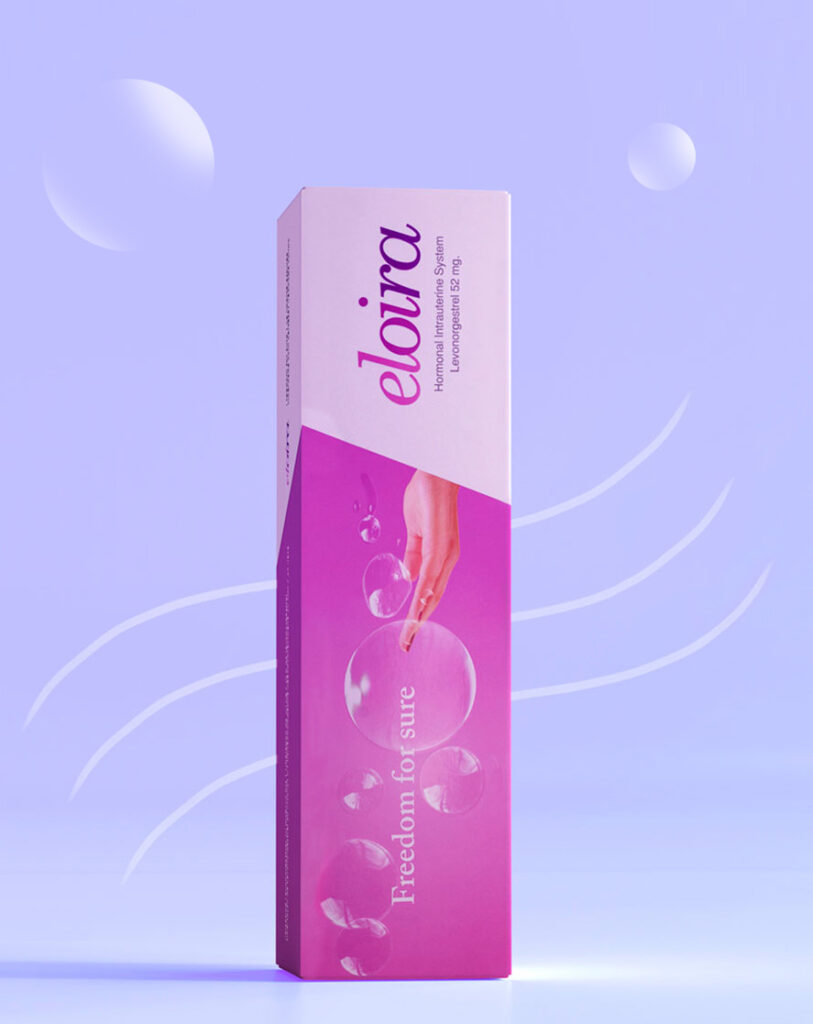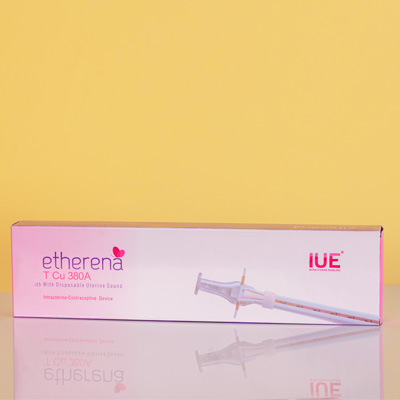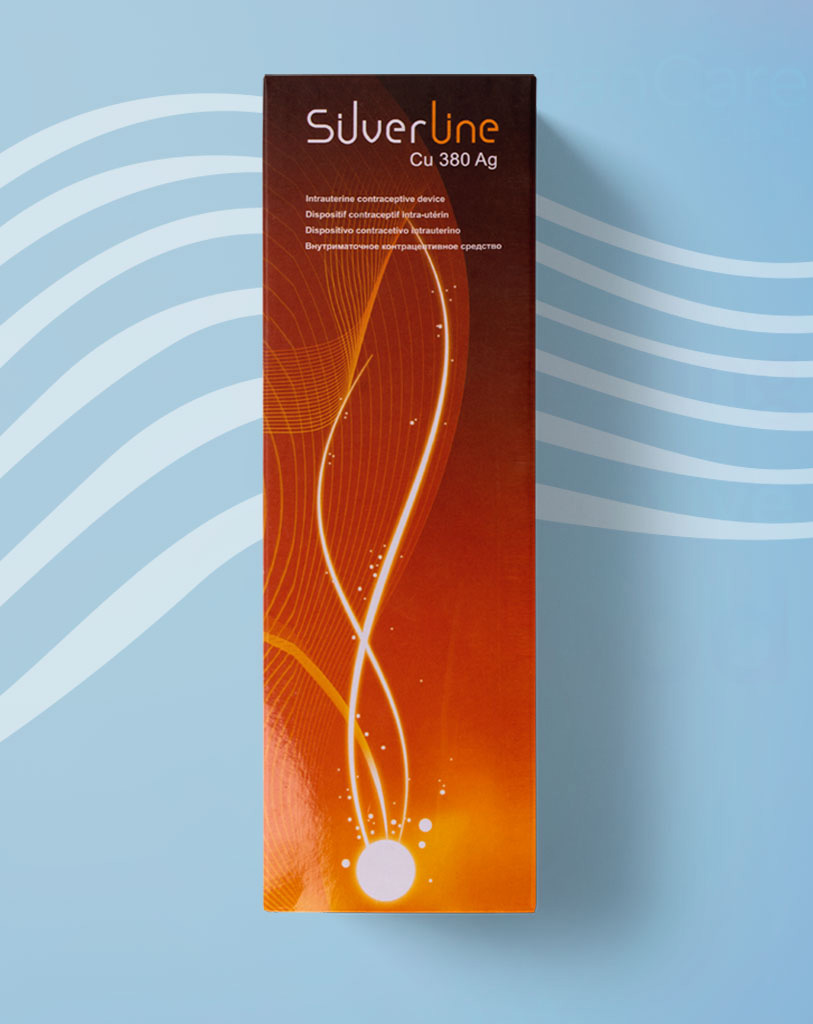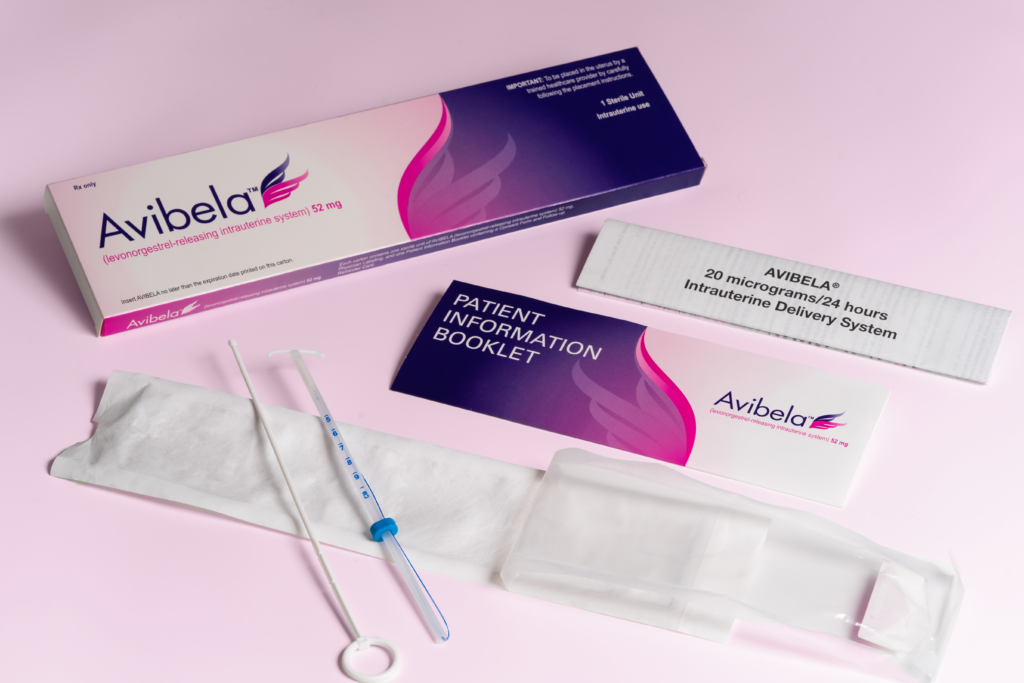What are intrauterine devices?
IUDs are small, T-shaped devices that sit inside the uterus. There are two different types of IUDs, copper and hormonal, both of which provide long-acting protection against pregnancy. Both copper and hormonal IUDs are listed in the World Health Organization’s Essential Medicines List, and the efficacy and safety of these products has been demonstrated in women through large clinical trials. IUDs can be inserted at any time in the menstrual cycle by a qualified healthcare provider if the provider is reasonably certain the woman is not pregnant.
Copper IUDs are non-hormonal and contain copper. They work by causing a chemical change that interferes with sperm transport and fertilization of an egg. Depending on the type, or brand, they can last up to 10 years.
Hormonal IUDs contain a synthetic hormone that acts like progesterone called levonorgestrel. This device releases a small amount of hormone into the uterus, thickening the cervical mucus, inhibiting sperm survival, and thinning the lining of the uterus. The hormonal IUD can be used to prevent pregnancy for up to 8 years, depending on local approvals.
IUDs are one of the most effective forms of contraception available today.
What are the benefits of IUDs?
Copper IUDs can be used as an emergency contraceptive method and be inserted up to five days after sexual intercourse. They can also be used by women who cannot use hormonal contraception.
Hormonal IUDs are also approved to treat heavy menstrual bleeding. The hormone, levonorgestrel, acts by controlling the monthly development of the womb (uterus) lining, making it thinner, so there is less bleeding every month.
Both copper and hormonal IUDs act locally in the uterus. IUDs can be used in women whether or not they have given birth to a child already. IUDs can be removed at any time and there is no delay in return to fertility after removal.
What are the side effects?
The most common side effects of the copper IUD include heavier or longer menstrual bleeding, pelvic infection, pain or dysmenorrhoea, discomfort or menstrual-like cramping.
The most common side effects of the hormonal IUD include vaginal bacterial infection, acne, nausea or vomiting, abdominal pain, pelvic pain, weight increase, mood changes, back pain, yeast infection of the other part of the vagina, headache, pain during sex, breast pain, depression, vaginal discharge, anxiety, and menstrual-like cramping.
For the first 3 to 6 months, the hormonal IUD can cause a woman’s period to become irregular and the number of bleeding days may increase. After a woman has used the hormonal IUD for a while, the number of bleeding and spotting days is likely to lessen.
It is not uncommon for menstrual periods to stop altogether when using the hormonal IUD. This absence of bleeding is not harmful. When the hormonal IUD is removed, a woman’s menstrual periods will likely return to their former pattern.
Misconceptions about IUDs
IUDs do not:
- Increase the risk of miscarriage when a woman becomes pregnant after the IUD is removed
- Cause discomfort or pain for the woman or the man during sex
- Increase the risk of contracting STIs, including HIV
- Cause infertility. There is no delay in fertility when it is removed
- Work by causing abortions





